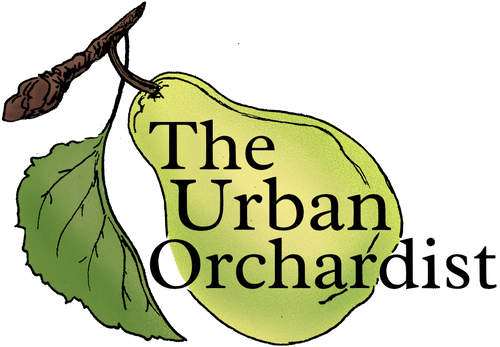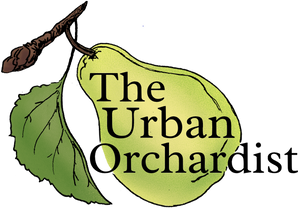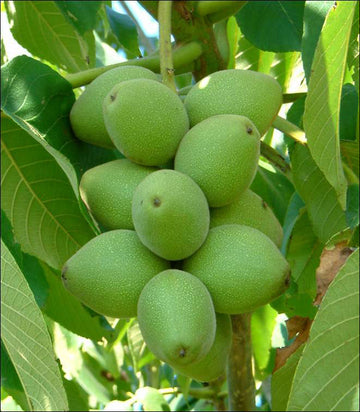

Heartnut seedling
Please note: Heartnuts are only available for local pickup or delivery, because they are no longer dormant - they are potted rather than bare root, and cannot be shipped economically.
Heartnuts (Juglans ailantifolia, variety cordiformis) are a type of Japanese walnut that produces delicious edible nuts. Heartnuts have a number of advantages: they are known for being both tastier and easier to crack than the native black walnut, and they don’t suffer from the disease that affects the native butternut. The tree has beautiful long and large compound leaves that remind me a little bit of pawpaw.
These are one year old heartnut seedlings, approximately 18"-24" tall, with robust healthy root systems. I prefer to sell nut trees after only one year so that they are less likely to experience root damage and transplant shock.
I find heartnuts an interesting and exciting tree for a number of reasons. They have commercial potential as a healthy perennial food source adapted to our climate (for more on this see the OMAFRA link below). And as someone interested in genetics and taxonomical relationships, I find their relationship to other species in the Juglans genus interesting – this touches on topics of hybridization and species conservation, and I’ve written a longer piece on the topic here: Can heartnuts have a place here? Thoughts on naturalization and hybridization.
Cold hardiness: Hardy to zone 5, so they are able to grow in much of southern Ontario. Any further north and there’s a risk of late frosts damaging the flowers. Seedling trees like I sell are hardier than grafted heartnuts.
Harvest: Nuts are harvested around the beginning of Autumn, and can be cracked open with a hammer, a strong mortar & pestle, a nutcracker made for black walnuts (although heartnuts are easier to open & extract than black walnuts), or possibly a handheld nutcracker. Heartnut is known for precocity (producing relatively early in its life), and for producing nuts more frequently than some native nut trees, which may only have a mast year once every 3-4 years.
Parentage: My seeds are sourced from selected trees from Grimo Nut Nursery, located in the Niagara area. Because these are seedlings, expect some variability in qualities like shell thickness, nut size and flavour, ease of cracking, and so on.
Pollination: Like other nut trees, Heartnuts are monoecious (both pistils and stamens on one tree), and are generally out-crossers that require cross-pollination. Some self-pollination may occur with only one tree, but it is advised to plant two or more.
Soil preferences: Heartnuts are said to do best on well-drained soil with a relatively high pH - just like we have in the Guelph area, for example. If your soil is relatively acidic, with a pH below 6, say, then heartnuts may not do as well – but your soil would be perfect for American chestnuts, which prefer a relatively acidic soil.
Pest or disease concerns: Heartnuts are hardy trees with few disease challenges, however several insects may affect nut production – of note are the butternut curculio and walnut husk fly.
References:
OMAFRA's Specialty Cropportunities entry on heartnut
Heartnut fact sheet from Perennia
'Some Notes on the Japanese Walnut in North America,' an informative article from the Society of Ontario Nut Growers, published in 1930.
Image 1: OMAFRA.
Image 2: Oregon State University.




